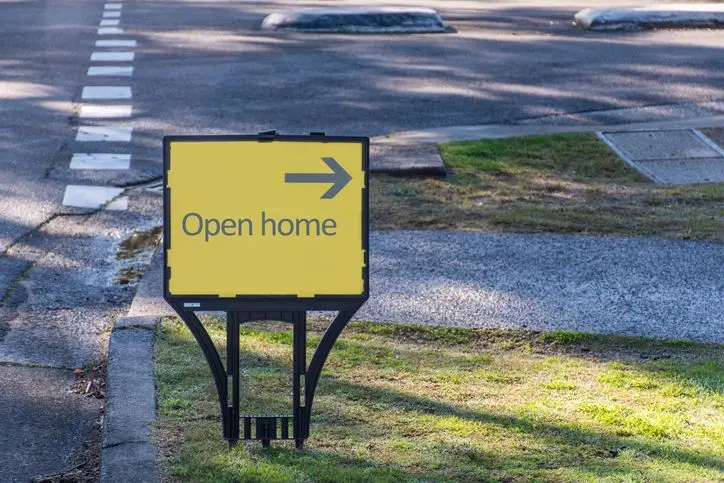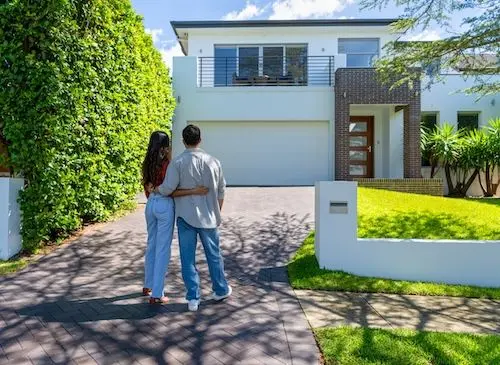
How to choose the right agent to sell your home
Finding the right agent for you can make all the difference when selling.

The property market in Victoria has its own pace and quirks. With legal steps, agent fees, and marketing strategies to think about, it pays to be prepared when selling a property. Whether you’re moving on, managing a change in circumstances or putting an investment up for sale, a well-thought-out approach can help you avoid hiccups and walk away with the best possible result.
Selling a property in Victoria comes with some key expenses. Most Victorian agents charge a commission of around 1.1% to 3.3%, though this can vary depending on your location and the agent’s experience. You can use our Commissions Calculator to estimate potential agent fees.
You'll also need to factor in marketing costs, legal or conveyancing fees, and optional costs like home staging and photography. Try our Selling Costs Calculator to estimate your total selling expenses.
Read the full guide on how to find the right agent to sell your home.

Please select your suburb from the drop down
Use our handy selling calculator to crunch the numbers and get an estimate.
Victorian properties are most commonly sold via auction or private treaty. Private treaty offers greater flexibility over pricing and terms, giving you more control throughout the process. On the other hand, auctions can build urgency and competition, potentially pushing the sale price higher.
Regional or lower-demand areas like Ballarat or Mildura may be better suited to private treaty sales. You have more time to attract a broader pool of buyers and to consider offers. High-demand suburbs like Fitzroy or Carlton may benefit from the fast-paced nature of auction. Talk to your real estate agent about which method suits your property and local market best.
Presentation matters regardless of whether you’re selling in Melbourne’s inner city or a regional town. Clean, declutter and take care of maintenance tasks before you put your property on the market. Many sellers also choose to invest in professional staging and photography to gain a competitive edge.
Read the full guide on how to prepare your property for sale.
In a private treaty sale, you’ll need to set an asking price. This should be based on recent comparable sales and advice from your agent. If you’re going to auction, your agent should help you decide on a reserve price (the minimum amount you’re willing to accept).
Overpricing can reduce buyer interest, while realistic pricing helps generate momentum early in the campaign. To get an initial idea, you can get a property report with recent sales in your suburb and an online property value estimate.
Marketing costs for selling property vary depending on your location and the type of buyer you’re targeting. Your agent will likely recommend a combination of:
The forms and documents required for selling a property in VIC include the Section 32 statement and the contract of sale, according to Consumer Affairs Victoria. These should be prepared by a conveyancer or legal practitioner.
For private treaty sales, buyers typically get a cooling-off period of three clear business days where they can change their mind. The period starts when the contract has been signed by both parties.
Properties sold at auction or within three clear business days of auction don’t have a cooling-off period, according to Consumer Affairs Victoria.
Settlement is usually 30 to 90 days and is negotiated between you and the buyer.
Read more on settlement and how to negotiate a settlement date.

Finding the right agent for you can make all the difference when selling.

From obvious expenses to hidden costs, get the full rundown of what's involved.

See expert predictions, and current pros and cons to help you decide.

Please select your suburb from the drop down
Remove the guesswork. Use OpenAgent to help you find, compare and shortlist the top agents in your suburb.
Planning to sell in Victoria? Use our calculators to estimate selling costs and agent fees, so you can make informed decisions from the start.

Calculate the costs involved in selling your property and budget effectively.

Pay the right commission for your suburb and maximise your sale price.

Our 7-day email course will guide you through every step of the selling journey.
If you’re selling a rental property in Victoria with tenants still living in it, you’ll need to follow the rules set out by Consumer Affairs Victoria. Landlords are allowed to sell tenanted property, but you must provide written notice to both your tenant and the managing agent. Tenants are entitled to:
If you want the tenant to vacate, you’ll need to give your tenant at least 60 days’ notice as well as proof that you’ll be selling. Refer to the Consumer Affairs Victoria website for full guidelines on selling a tenanted property.
Capital gains tax (CGT) is a federal tax that applies when you sell an asset like an investment property for more than you paid for it. In Victoria, you’ll need to consider CGT if the property is not your primary residence. CGT is taxed at your marginal income tax rate.
If you’ve owned the property for over 12 months, you may be eligible for a 50% CGT discount. For example, if you bought a property for $500,000 and sold it for $650,000, your taxable capital gain could be reduced from $150,000 to $75,000.
Exemptions and special rules may apply if the property was inherited or your main home for a period of time. Speak to an accountant or refer to the ATO for detailed advice. Read more on tax for selling investment property.
Selling a deceased estate in Victoria can be more complex than a standard sale. The executor of the will (or administrator, if there’s no will) must first obtain a grant of probate or letters of administration from the Supreme Court of Victoria before listing the property for sale. This grants the legal authority to deal with the estate, including the sale of property.
Once probate is granted, the executor can bring the property to market. Capital gains tax may apply if the property is sold more than two years after the deceased’s date of death, though exemptions are often available for a principal place of residence. It’s best to consult a solicitor and accountant for guidance through the legal and tax implications.
It is legal to sell your property privately in Victoria without using a real estate agent. This is often referred to as selling 'For Sale By Owner' (FSBO). While it can save you commission fees, it also means taking on tasks like pricing, marketing, legal compliance, and negotiations yourself.
For most sellers, working with an experienced agent is worth the cost for the guidance, market reach, and peace of mind. Typically, you’ll be able to get a higher sale price for your property as well.
Selling property in Victoria usually involves:
This can vary depending on market conditions and your location. In Melbourne’s inner suburbs, well-priced properties can sell in a few weeks. In regional areas, it may take longer. For a more accurate estimate based on all the different factors at play, speak to a local agent.
Seasonality can impact the time it takes to sell as well. For example, the median days on market (DOM) for a property in Melbourne is 30 days. However, in Autumn and Spring, it goes down to 29 days, and in Summer, it goes up to 36 days. You can get a free property report to see what the average DOM in your suburb is.
There are no state-specific seller taxes in Victoria, but capital gains tax (CGT) may apply if the property is not your primary residence. You may be eligible for a discount if you’ve held the property for over 12 months. Stamp duty is paid by the buyer. We always recommend speaking to a tax professional to ensure you meet all your obligations.
Both methods have their pros and cons, and the right choice often depends on your property type, timeline, and local market. Your real estate agent can guide you toward the best method based on your goals and local market conditions.
Auctions work well in competitive areas like Carlton, Brighton or Fitzroy, where strong buyer demand can push prices higher through bidding. Private treaty, on the other hand, offers more flexibility with price and conditions—making it ideal in regional areas like Ballarat, Shepparton or Mildura, or when buyers need more time to organise finance or inspections.
In most private sales, the buyer has a 3-business-day cooling-off period. This does not apply to properties sold at auction or if the buyer waives it in writing.